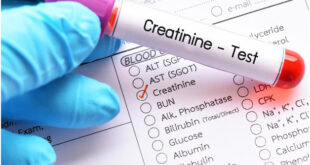How to Reduce Anhedonia
Anhedonia is a condition that describes a decreased interest in activities which used to be enjoyable for that person, as well as a decreased ability to feel pleasure and satisfaction. It’s a major symptom of depressive disorder, but it can also be seen in other mental health disorders.

Mind you, not everyone with anhedonia has been diagnosed with a mental health issue.
Symptoms of anhedonia
Researchers are still in a dilemma whether anhedonia can be categorized into two main types, but some literature suggests that this mental health can be divided into social and physical anhedonia.
Social anhedonia is often described as an increased loss of interest in all aspects of interpersonal relationships and also there is a lack of pleasure in participation in social situations. While physical anhedonia is a condition where there is an inability to feel tactile pleasures such as eating, touching, or having sex.
The symptoms of anhedonia are:
● social withdrawal
● diminished pleasure from daily activities
● a lack of relationships or social withdrawal from previous relationships
● lack of interest in previous hobbies
● loss of libido or a no interest in physical intimacy
Examples of anhedonia
Some examples of what it happens when you experience anhedonia:
● You used to have love for playing soccer in the evenings but now no longer desire to play the game or make any interaction with your teammates.
● Previously cooking used to be your favorite hobby, but now you have no interest in it anymore,
● You’re no longer excited to go out with friends or socialize with anyone.
● You do not feel the same or withdrawn from your partner, and have severely low libido.
● An activity that used to fill you with Happy mood, such as going to see live music, no longer gives you positive vibes.
Causes of anhedonia
Anhedonia is a core symptom of schizophrenia and depression but has been identified in individuals dealing with chronic illness and Parkinson’s disease.
Moreover, it can also be caused by substance abuse (like using illegal drugs).
Risk factors for anhedonia
If you are diagnosed with depression or schizophrenia, there is increased risk of developing anhedonia. Other risk factors are:
● living with PTSD because of a traumatic event or events
● Underlying chronic illness that impacts your quality of living.
● an eating disorder
Anhedonia diagnosis
Your physician may do a physical exam to determine if you suffer from any physical problems.
Moreover, your doctor may also order a blood draw to test for any vitamin deficiency (like vitamin D)or check for any thyroid problem, which could contribute to symptoms of depression.
Anhedonia treatment
Anhedonia can be complicated to treat. In many cases, treatment needs to be done with tools to help you manage the mental health issues that can be causing the symptoms, such as depression.
The first step of your treatment should be seeking the help from a healthcare provider. If they don’t find any medical issues, then they might recommend you to consult a psychiatrist, psychologist, or other mental health care professional.
Medications and therapy
Treatment includes talk therapy, along with medications such as antidepressants. In some cases, other classes of medications may be prescribed, your healthcare provider will also help you to create a treatment plan which is best suited for you.
These medications affect different people in different ways. A medication that works for someone may not work for others with the same symptoms.
ECT therapy
Another treatment option that can be used in some cases is electroconvulsive therapy (ECT). ECT is also one of the most effective treatments for severe depression that can not be relieved by therapy or medication.
TMS
Transcranial magnetic stimulation (TMS) uses a magnetic field to activate nerve cells. It uses a smaller electric current than ECT and no need for general anesthesia. TMS can help to treat people with major depression where people are not responding to medication.
VNS
Another treatment option is vagus nerve stimulation (VNS). In this Your doctor will implant a medical device which will be similar to a pacemaker in your chest. The wires of this stimulator creates regular electrical impulses that stimulate your brain cells.
 Health Beauty Tips
Health Beauty Tips






